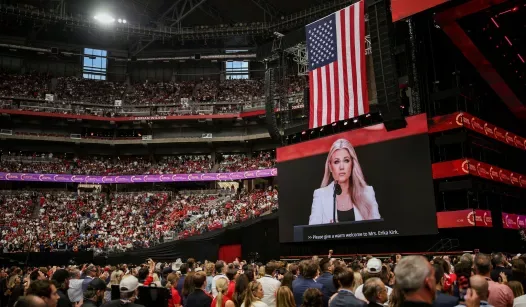In the United States, the relationship between politics and religion has long been a topic of debate and discussion. This intersection is often highlighted in various events, such as memorials or public gatherings, where political figures and religious themes converge. A recent event, often referenced in conversations about Christian nationalism, has sparked discussions about the role of faith in political contexts.
At the heart of these discussions is the understanding that mixing politics and religion is not inherently problematic. The United States was founded on principles that allow for the free exercise of religion, and this freedom has shaped the political landscape in profound ways. Many Americans find that their beliefs inform their political views, and this blending of the two can lead to meaningful dialogue and engagement.
One notable example is the memorial for Charlie Kirk, a prominent conservative activist and founder of Turning Point USA. This event drew attention not only for its political implications but also for its religious undertones. Critics labeled it as an embodiment of Christian nationalism, a term that often carries negative connotations and suggests an exclusionary approach to governance. However, a closer examination reveals that the memorial was more about honoring a figure who resonates with many Americans rather than promoting a specific ideological agenda.
The blending of politics and religion can be seen throughout American history. From the sermons of early colonial leaders to the speeches of modern politicians, religious rhetoric has often been used to inspire and mobilize citizens. Figures like Martin Luther King Jr. exemplified this connection, using his faith to advocate for civil rights and social justice. In contemporary politics, many leaders continue to draw on religious themes to connect with their constituents, reflecting the diverse beliefs that characterize the American populace.
While some may argue that the intertwining of politics and religion can lead to division, it can also foster a sense of community and shared purpose. For many, faith provides a moral framework that guides their political decisions, allowing them to advocate for policies that align with their values. This is particularly evident in discussions around social issues such as healthcare, education, and immigration, where religious beliefs often inform perspectives on what constitutes justice and compassion.
However, it is essential to navigate this intersection with care. The challenge lies in ensuring that political discourse remains inclusive and respectful of the diverse beliefs that exist within the country. While individuals may draw inspiration from their faith, it is crucial that policies are formulated with consideration for all citizens, regardless of their religious affiliations. This approach not only strengthens democracy but also fosters a more harmonious society.
As we reflect on events like the Charlie Kirk memorial, it is vital to recognize the broader implications of mixing politics and religion. Engaging in these conversations can help clarify the role of faith in public life and the importance of maintaining a balance that respects both individual beliefs and collective governance.
In conclusion, the intersection of politics and religion is a complex and often contentious issue in the United States. While it is perfectly acceptable for individuals to integrate their faith into their political views, it is essential to approach these discussions with an open mind and a commitment to inclusivity. By doing so, we can create a political environment that honors the rich tapestry of beliefs that define our nation while fostering meaningful dialogue and collaboration.
